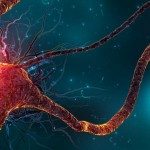About
NEUROSCIENCE SEMINAR SERIES
Vendredi 02 juin 2017 à 11h30
Salle Retrovirus, Bâtiment Lwoff
Pr Johannes J. Letzkus
(Max Planck institute for Brain Research, Frankfurt, Germany)
“Circuit mechanisms of associative fear learning in auditory cortex”
Invité par Morgane Besson – Contact : morgane.besson@pasteur.fr
Abstract :
The neuronal mechanisms of associative learning have been under intense investigation for many decades. While a great body of work has elucidated synaptic plasticity as the putative cellular mechanism of learning, we know much less about the interactions of different types of neurons in the local network that underlie acquisition and expression of memory. In particular, all aspects of circuit function are tightly controlled by different types of inhibitory interneurons, but their role in memory is little understood. To address these questions, we record activity in identified neurons in auditory cortex during acquisition and expression of associative auditory fear memory. Our results indicate that a mild foot-shock, which drives learning in this paradigm, elicits strong and differential responses in defined types of auditory cortex interneurons, leading to disinhibition of pyramidal neurons as a necessary component of memory acquisition. Interestingly, slice recordings reveal that interneurons in layer 1 of human neocortex display the cellular prerequisites for similar responses to aversive stimuli. In addition, our data indicate that a reduction of principal neuron inhibition during the foot-shock is also a crucial mechanism for fear learning in the amygdala, suggesting that disinhibition is a conserved circuit mechanism for induction of experience-dependent plasticity. On top of its role during learning, auditory cortex is also indispensable for fear memory expression as revealed by optogenetic silencing, and 2-photon calcium imaging in behaving mice indicates that auditory responses of a defined type of layer 1 interneuron are strongly potentiated between habituation and memory expression. This suggests a key involvement of these neurons also in memory retrieval, and we are currently investigating the afferents that mediate this potentiation, as well as the local connections to other interneurons and the distal dendrites of pyramidal cells through which layer 1 interneurons affect processing of conditioned stimuli.


